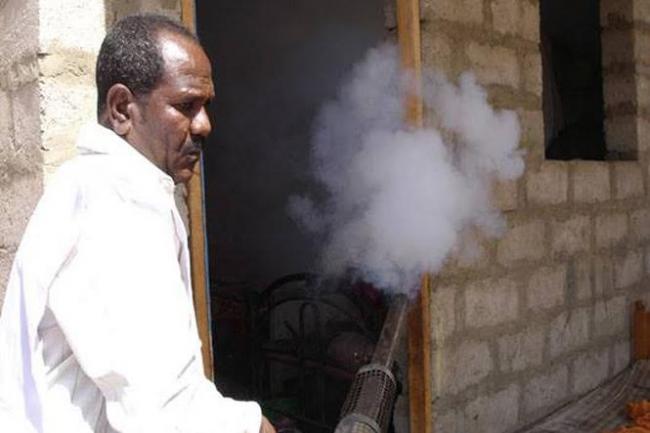01 Sep 2015, 07:13 am Print

“There is an urgent need for a humanitarian corridor to assess the situation and institute control measures,” said Dr. Ala Alwan, WHO’s Regional Director for the Eastern Mediterranean.
“We need protection and safety for all people working to control the worrying outbreak of dengue fever in Taiz, which includes support with residual spraying, health education of communities and distribution of other supplies,” Alwan said.
With an estimated population of 3.2 million people, Taiz, near the southern tip of the country, is the most populated governorate in Yemen where now three of its major hospitals are inaccessible or have been caught in the frontline of fire denying millions of displaced, sick and wounded civilians access to health services, WHO said in a press release issued over the weekend.
More than 800 deaths and over 6,000 injuries have been reported in Taiz since March 2015.
And now, according to WHO, an extreme spike in cases of dengue fever has been recorded in the governorate in the past 2 weeks from 145 suspected cases at the start of August to 421 by 25 August 2015.
“With the ongoing insecurity and mass displacement of thousands of people, it is likely that the situation will deteriorate in the coming days, placing over 3.2 million people at additional risk,” the agency warned.
Dengue is a mosquito-borne viral disease, according to WHO. It is a febrile illness that affects infants, young children and adults with symptoms appearing 3-14 days after the infective bite.
WHO reminded all parties to the conflict of their obligations under international humanitarian law to protect civilians, health facilities, and health professional during the conflict, and that health facilities must be treated as neutral premises and never be exploited for military purposes.
“All parties to the conflict must observe a ceasefire and demilitarize all hospitals and health facilities in Taiz, allow for the safe delivery of the supplies, implement measures to control the dengue outbreak, provide treatment and enable access to injured people and other patients,” Alwan said.
Photo: WHO Yemen
- New hybrid Mpox strain surfaces in UK and India — WHO sounds global alert
- Deadly weight: Obesity now responsible for 1 in 10 infection deaths worldwide
- Coffee and tea: This everyday drink may help protect your brain from dementia
- Happy Chocolate Day! The sweet secret behind chocolate’s hidden benefits
- Cambridge study finds menopause affects memory, mood, and sleep





-1763561110.jpg)
